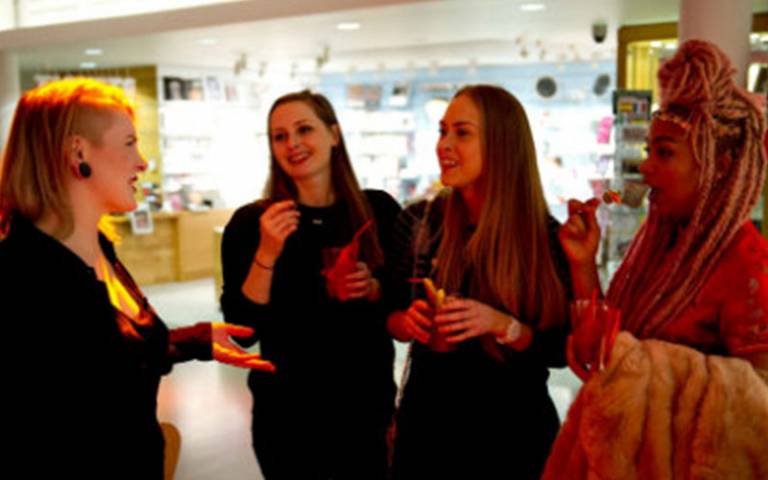Creating materials for future students using students’ experience
Dr Theano Moussouri (UCL Institute of Archaeology) describes how UCL ChangeMakers funding has assisted five students to gain professional experience.

16 August 2016
The UCL ChangeMakers funding has assisted five students to gain professional experience with the Jewish Museum in London by running a new type of event and then creating evaluation materials for future cohorts.
In conjunction with academic staff, five MA Museum Studies students successfully bid for funding as part of the module ‘Museum Placement’, a hands-on experience for students to work with professional staff at the Jewish Museum in London over five months to research, plan, promote and run a late opening event, from October 2015 to February this year.
Providing students with work-place skills
In the module, the students shaped their own project by:
- taking the lead in developing a management system and a communication approach
- choosing team roles and allocating responsibilities and tasks
- conceptualising, designing and delivering their project in time and within budget,
- considering the wider cultural and policy context.
They were also required to work within the legal and ethical framework to which museum professionals need to adhere.
The students worked together as well as individually to contextualise academic learning from their first term to create the first event of its kind for the museum from scratch.
With the support of the professional museum team and academic staff, students took on positions of high responsibility in a semi-structured environment, collaborating with each other and the museum to create a public-facing output.
The module exemplifies a research-based approach education as championed by the Connected Curriculum.
How the ChangeMakers project interacted with their module
The ChangeMakers proposal for funding was “to provide an insight into what the process of working in a group project involves from the students’ point of view, and to share this insight with other students in later cohorts as well as beyond this particular project/module.” They created a bank of materials for future students to use.
The students said: “Work students undertake as part of a group is currently a ‘black box’; students do manage to self-organise and produce expected outputs but we have few insights about successful approaches or pitfalls to share with subsequent cohorts”.
The students used a combination of email and Facebook as well as face-to-face meetings throughout the project to coordinate their activities and reflect on their experiences and choices.
Reflecting on their experience with these technologies, they realised that it would have been better to use the digital project management tool Trello (as recommended by colleagues in Digital Education) but the students had felt that they would need a lot of time to learn how to use it. However, they did use Trello in a subsequent project.
Dr Moussouri has been surprised at how readily the students have taken on sharing their experiences and how the evaluation materials have already been used by other students. “We now have a database of experiences which can be used widely across our programmes for various group work. Everyone wanted to share their learning with students putting in a lot of effort in to them.”
Reflecting on their experiences for personal and professional development
The process also encourages students to reflect about how they worked as a group, how they approached a long-term project, what their individual role was and how they might develop in future.
By expanding professional development beyond the scope of writing a report on just their individual experiences or career-related events, students benefited from highlighting the group skills of negotiation, communication and compromise at an early stage of their career.
 Close
Close

